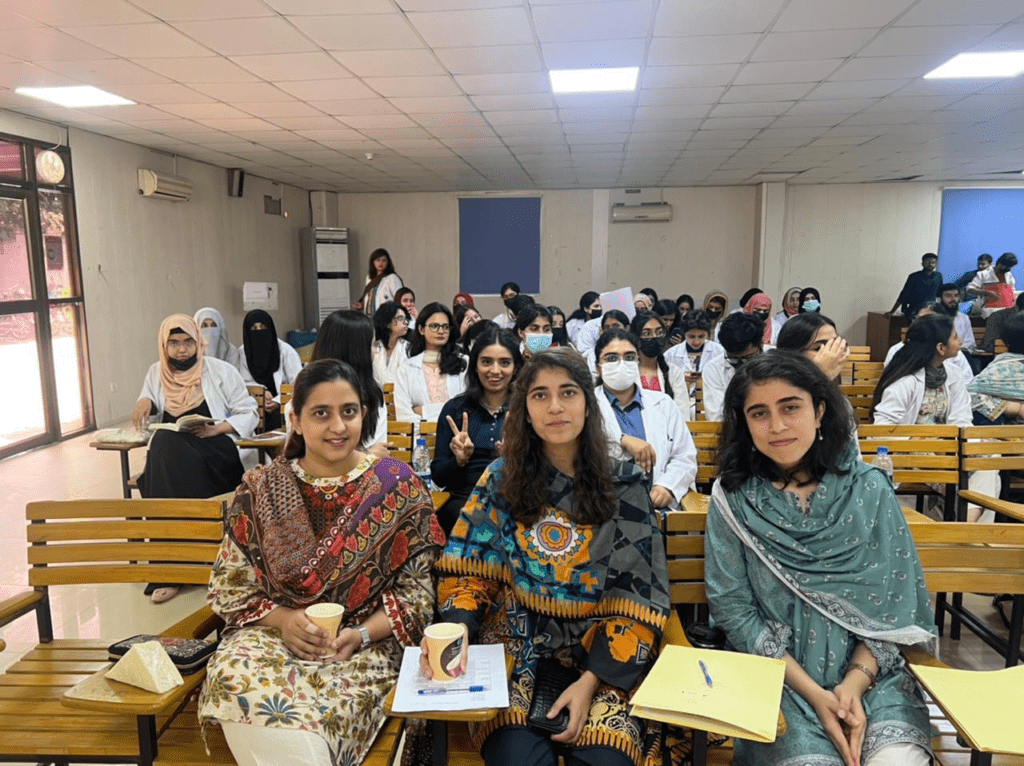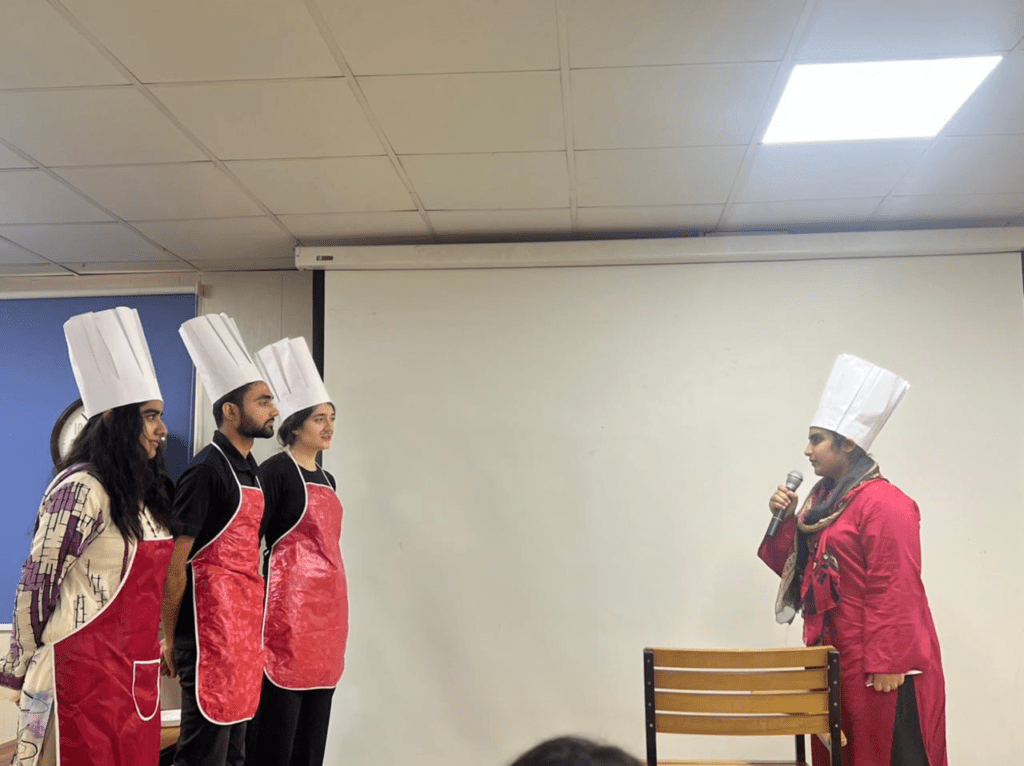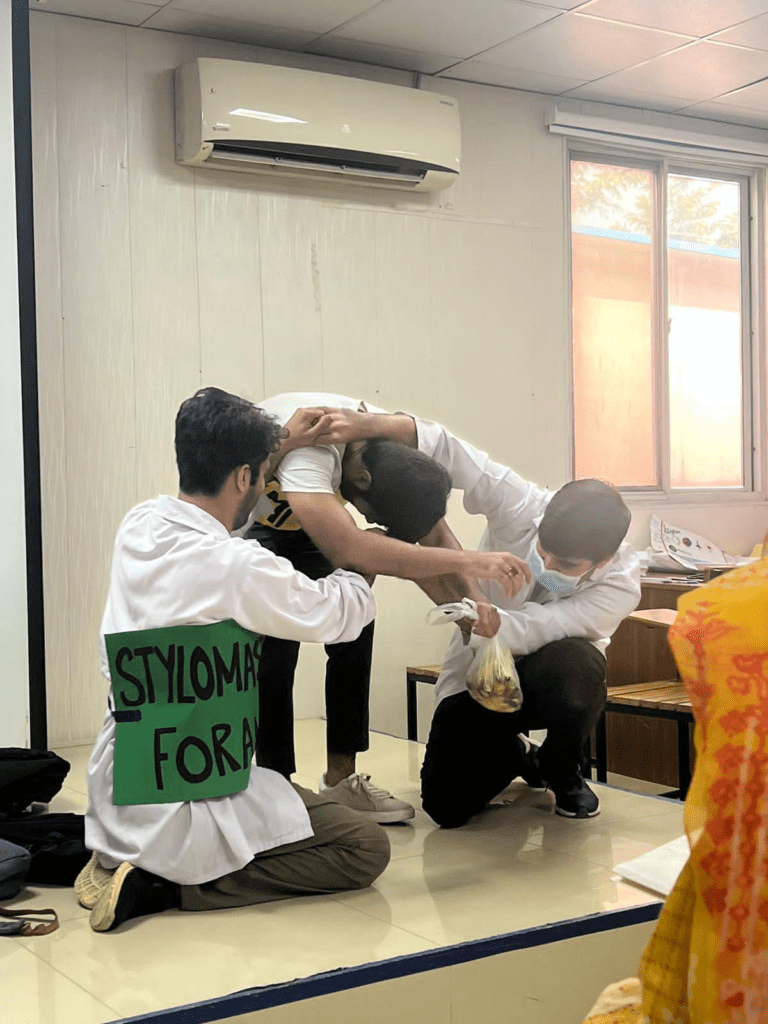Redesigned session plan (Class of 2025, Y-II)
PSL live streaming by Shifa Sports Committee and Shifa Students Society
March 20, 2023Unity in Diversity- Pakistan Day
March 30, 2023The success of a teaching session depends on multiple factors; one is to adopt a new teaching methodology and make sessions student cantered. A SKIT was conducted in MFS Module (Y-II) at Shifa College of Medicine. This activity was done by module director Dr Syeda Sara Bano, along with members of Team II.
This teaching aimed to prepare students for the next level of their education. The session was redesigned on bell’s palsy in the form of a skit usually taught in lectures. The whole class of 2025 was involved in this activity and enthusiastically participated.
Class of 2025-YII students were divided into three groups; the time allocated for the skit was 10 to 15 min for each group. Group maintenance Roles were assigned to each group member according to their need and performance. These roles were leader or chairperson, timekeeper, progress chaser, secretary and innovator. After all this activity, when I looked at the student’s performance, it was marvellous. Everyone enjoyed that learning, and they all were having good grip on the topic as well. During the activity, a formal assessment was conducted by different teachers from the department. Those were invited for a session, and a grading system was made to evaluate the students’ performance. In that graded system, rubrics were used as an assessment tool.
Certificate distribution was honoured by Professor Dr Ashraf Hussain (Professor of Anatomy Shifa College of Medicine) and Professor Dr Ayesha Rafi (Professor of Anatomy Shifa College of Dentistry).
The skit was so well prepared by the class of 2025 that the laughter and interactions at the end humanised the whole act. When students got into the session, they were learning with fun, and everyone was enjoying themselves. Redesigning a session enhances the traditional lesson and pushes it to the next level.
We observed that adding such tasks builds up the concept of teamwork, and when there is group work, results are productive, classic and quick. We want to redesign sessions in my modules from the traditional way of tutoring to tutor absent format; this way, the students become in charge of their learning and learn actively.







